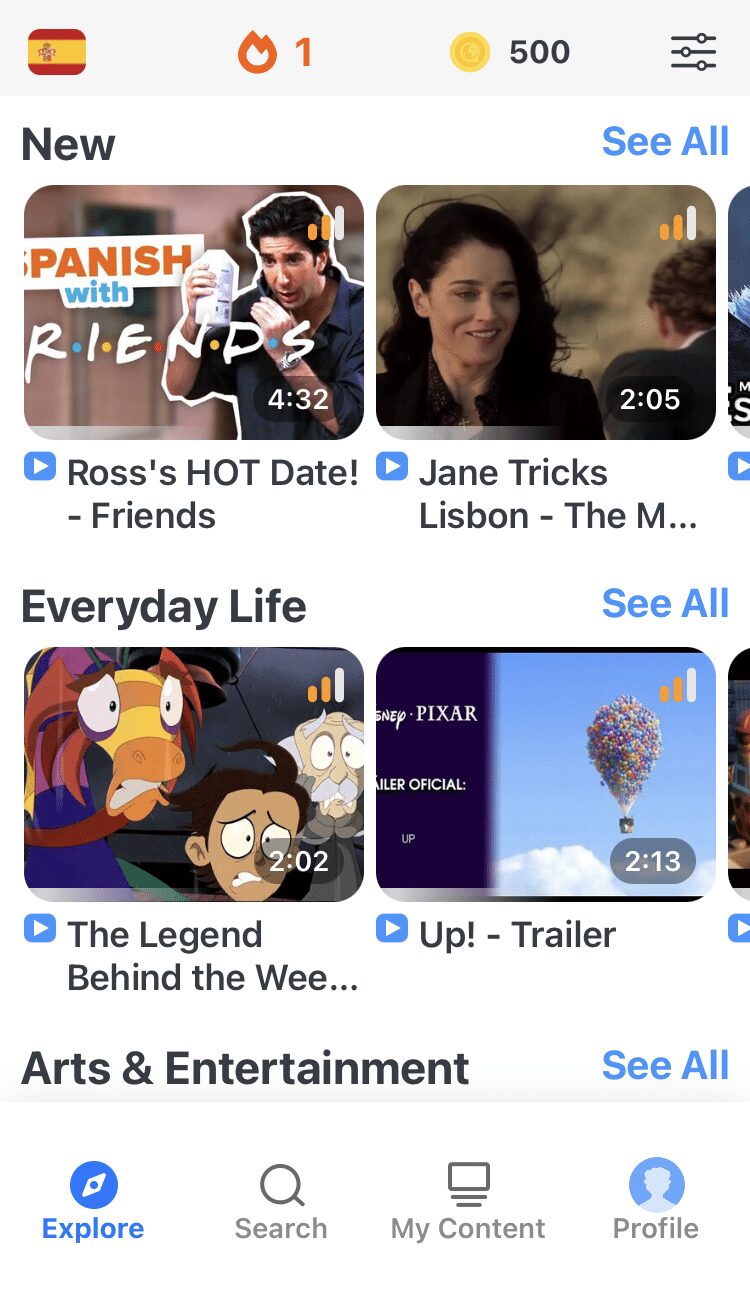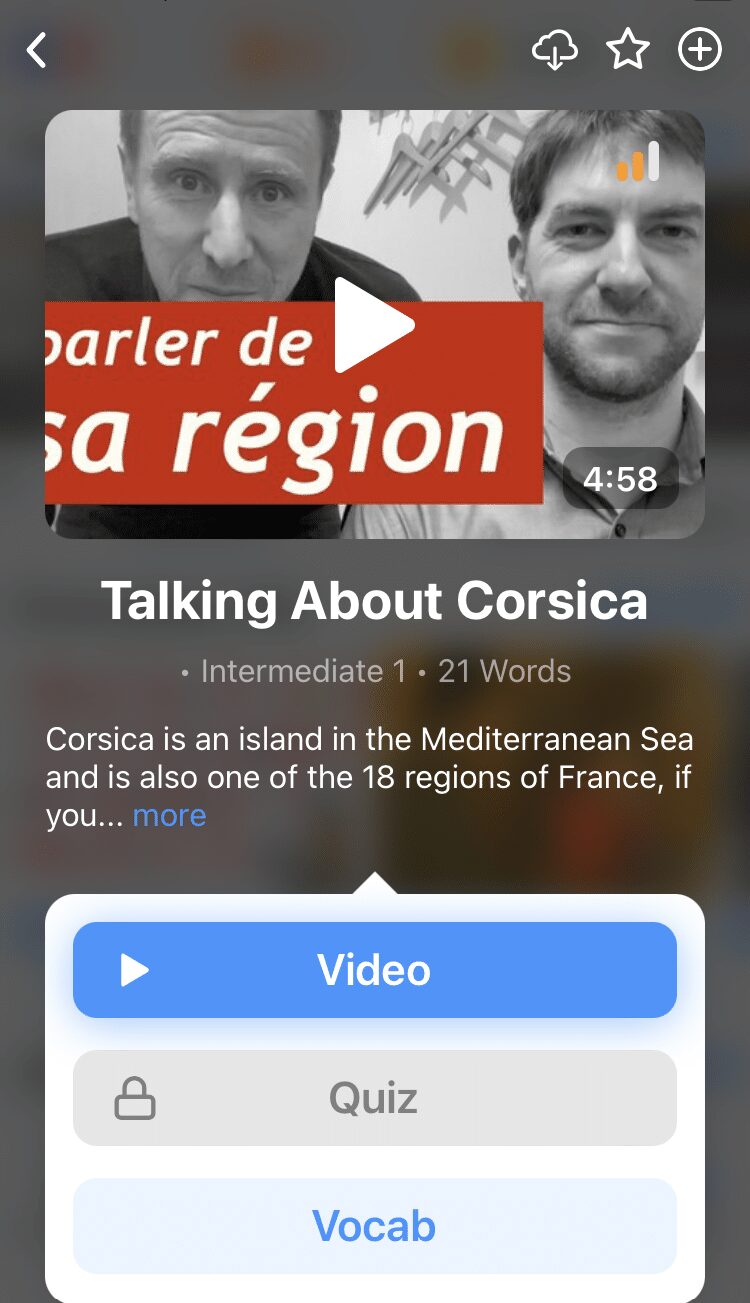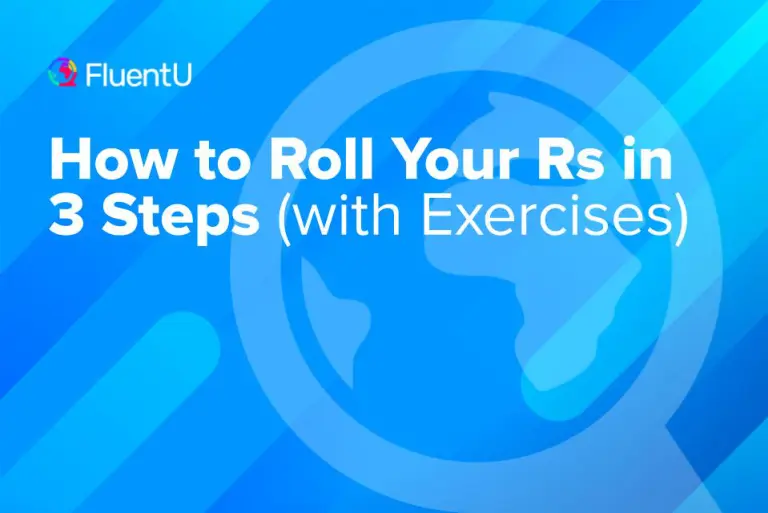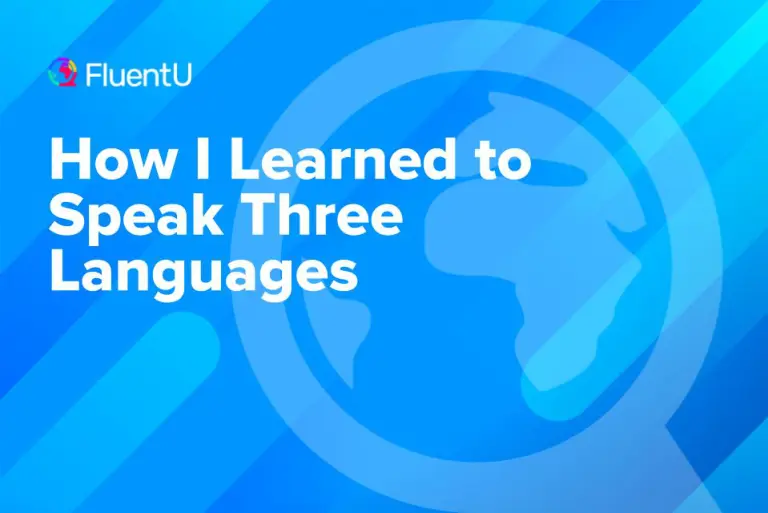Contents
- 1. Deliberately Fill Holes in Your Vocabulary
- 2. Start Working Your Target Language Into Your Daily Life
- 3. Get Intensive and Extensive with Your Novel Reading
- 4. Add Output to Your Input
- 5. Set mid-term and mini-goals instead of long-term goals.
- 6. Relax and Accept Learning Plateaus
- And One More Thing...
Advanced Language Learning: 6 Effective Tips
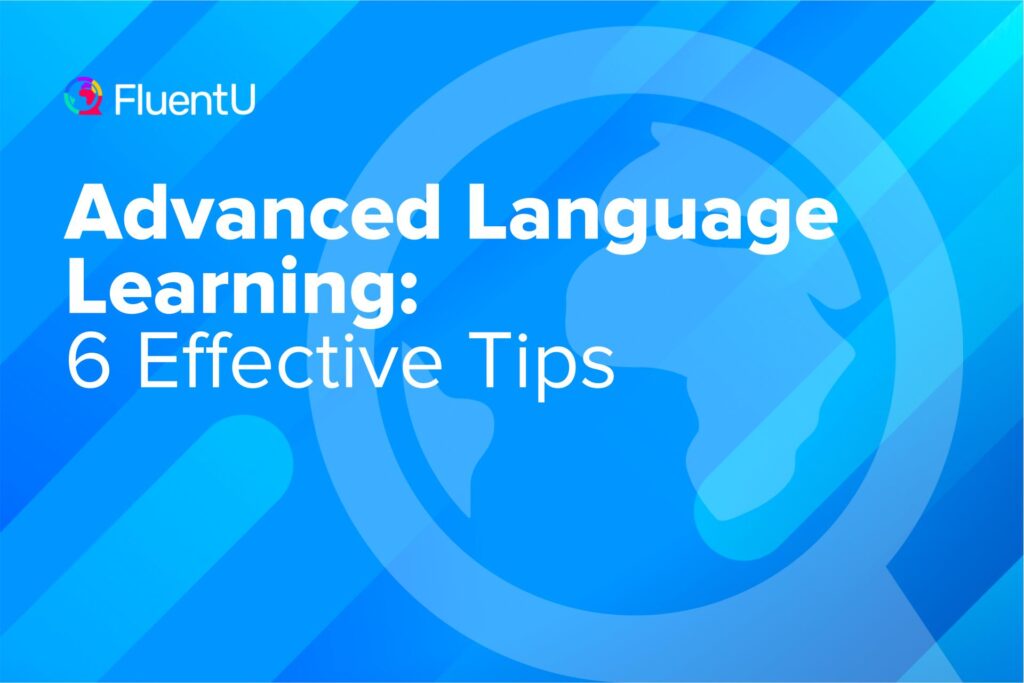
If you’re here, you’ve probably become proficient in a new language, maybe even on your own. But have you ever noticed that the resources can hit as many plateaus as your progress?
To help combat this issue, I’ve put together this list of ways to go from advanced to fluent that you can try today.
Download: This blog post is available as a convenient and portable PDF that you can take anywhere. Click here to get a copy. (Download)
1. Deliberately Fill Holes in Your Vocabulary
While this tip is a little textbook-y, it’s great for learners who already have a good handle on their target language.
Think hard about your vocabulary-based weaknesses. Can you talk easily about your job? About your favorite animal? Your hobbies? Can you teach someone to play your favorite sport in your target language? No? Then fix it!
For example, scroll down to check out the baby-themed part of this “Around the House” vocab list on MedicalSpanish.com. It includes the Spanish equivalents of words like “crib,” “stroller” and “diaper.” You probably knew these words when you were four (for good reason), but they don’t tend to pop up in your run-of-the-mill language course or immersion environment. A specific word list like this one is your solution if you suddenly need to talk about babies!
Most major languages have tons of vocab lists online. And it’s important to realize that even if they seem basic, they’re not necessarily just for beginners. There are lists out there with every household object you can think of (can you say “clothespin” in your target language?), obscure animals, gaming vocab, etc.
One way to find these kinds of lists is to simply Google “[topic] word list [target language].” You can also read Wikipedia articles on whatever subject you like, and look up the terminology you don’t know. It’s reading, it’s fun and it’ll make you into one fantastic conversationalist!
2. Start Working Your Target Language Into Your Daily Life
Think beyond deliberately setting aside time for textbook study, reading or even target language TV. You’re past the beginner stage, so now’s the time to mix these things in with your other everyday activities. Make the language a part of you.
Start browsing the Internet in your target language. Look up websites and online communities that talk about your favorite hobbies, your field of study or your work. TV, movies, video games—whatever native resources you like—are doubly important now.Change your phone language settings, if you haven’t already.
However, if you’re one of those good souls who’s been hitting the native resources from the get-go, try upping your concentration level every now and then. Really try to understand everything. See a word you don’t know? Don’t ignore it, look it up! Write it down or enter it in your SRS flashcards system.
More input is crucial for advanced learning. Aim for resources outside your comfort zone every now and then, and focus on the parts you don’t know.
You can also add an immersive language learning program to your collection of resources, such as FluentU.
FluentU takes authentic videos—like music videos, movie trailers, news and inspiring talks—and turns them into personalized language learning lessons.
You can try FluentU for free for 2 weeks. Check out the website or download the iOS app or Android app.
P.S. Click here to take advantage of our current sale! (Expires at the end of this month.)
3. Get Intensive and Extensive with Your Novel Reading
In the spirit of focusing on what you don’t know, novels will improve intermediate and advanced language skills in a very specific way. They hand you that specialized vocabulary on a silver platter.
It’s hard to express yourself if you lack the specific words that let you say precisely what you mean. Really pay attention to the long, descriptive passages in your novel. Sections like this tend to be more difficult and use less common vocabulary.
If you’re already into novels, you might have skimmed these bits before to get to the easier parts with more action and dialogue. But really concentrating on these passages will serve you well at this stage in your learning.
Nevertheless, dialogue is also great for picking up conversational nuances and slang you might have missed in your listening or textbook work.
I find that at the intermediate and advanced levels, middle-grade novels (aimed at children ages 8 through 12-ish) and young adult fiction (aimed at the 12 through 18 crowd) are the most useful for making progress. The stories tend to be short and engaging without being bogged down with too much flowery language.
Try to find your favorite childhood novels in translation, or look for book bloggers and vloggers and get recommendations from them. (Just Google or YouTube search “favorite books” in your target language.)
How to Read Novels as an Advanced Language Learner
So besides keeping up with those descriptive passages, how can you incorporate novel reading into your routine with an eye on the advanced level?
Try balancing these two methods:
- Extensive reading: This is reading for pleasure! The goal here is breadth. You want to be reading lots of novels, skipping what you don’t know. You have my permission to ignore unknown vocabulary words and weird grammar constructions! You’ll end up picking up a lot of these through context, anyway. Pick up things in your favorite genres and just relax and have a good time. You won’t understand everything just yet, but extensive reading gets you there!
- Intensive reading: This is the opposite of extensive reading. The goal here is depth. This fits in with the aforementioned idea of really focusing on what you don’t know. Look up words on each page and make note of them or enter them into your SRS. Make notes of grammar patterns you haven’t seen before. This gets tiring, so I’d recommend limiting it to 2-3 pages or 10-20 minutes at a time.
4. Add Output to Your Input
Output (speaking and writing) is often the benchmark of whether we “know” a language.
During the beginning stages of language learning, it can be beneficial to stick with input (listening and reading) while you build up your skills. Then, when you feel somewhat confident, you can bounce over to talking and writing.
If you use this kind of input-based method, you can comfortably start to practice speaking and writing at the mid-intermediate stage, around when you start to understand sizeable chunks of clearly-spoken media.
The main thing to keep in mind when practicing output is that it’s important to get corrected! Here are a few resources you can use for this:
Conversation Exchange
This site allows you to contact native speakers for Skype calls, live meetups or pen pal exchanges. While it gives all of these options, I find it’s best for seeking out pen pals—a lot of people on the site are willing to exchange emails every now and then. This is great because, like Lang-8, it forces you to write long letters rather than quick texts, and you’ll get corrections!
Again, push yourself out of your comfort zone and talk about a variety of subjects (though political opinions or religious manifestos might not be as appropriate when writing directly to another person).
Google searches
If you’re just writing on your own and you’re not sure about a particular phrase, try typing it into the Google search bar. If it autocompletes, you’re probably right!
If you’re still not sure, search the phrase in quotes to see if native speakers commonly use it.
WordReference forums
While you might already be familiar with the online multilingual dictionary WordReference, you may not have taken advantage of the site’s extensive forums. The forums are a fantastic resource because native speakers and learners discuss the nuances of all kinds of vocabulary.
This is a boon for the intermediate-advanced learner who’s moved beyond your standard bilingual or monolingual dictionary!
italki
italki is a popular site that’s geared towards learners who want to practice their languages over video call. On italki, you can also hire an online tutor if you choose.
Language exchanges with partners involve speaking your target language for a set amount of time, and then switching to practicing the other. So look for a serious partner on these sites who’s willing to brutally correct you and talk about a variety of subjects!
You can check out our full, in-depth italki review here.
5. Set mid-term and mini-goals instead of long-term goals.
When you’re a beginner, it’s easy to absorb what’s around you—the common vocabulary, grammar and other basic conversational stuff.
When you’re at the high-intermediate or advanced stage, you know that there are still linguistic bits you’re missing, but doing the same old things that worked as a beginner doesn’t necessarily cut it anymore.
Goals are key here—they can vary widely, from learner to learner, but they help maintain your progress. To make sure you stay on track, set mid-term goals. Your long-term goal is probably fluency in the language, and you’re still working towards that.
But mid-term goals keep you on track from week to week and month to month.
These can include things like:
- To be able to comfortably have casual conversations within two months
- To be able to talk about your work at a job interview level within [number] months
- To be able to understand classical literature in your language within [number] weeks
Specific goals are best—you know what reaching the goal should look like, so you’ll know with certainty when you’re there.
Set mini goals too—these can be things you do on a daily basis. Try to tailor them to your long-term goals, and they’ll help you along the way. For example:
- Zoom conversations once a week
- italki journal entry three times a week
6. Relax and Accept Learning Plateaus
Learning plateaus are common in the intermediate stage and beyond. You were used to making huge strides as a beginner, but now it may seem like it’s been a long time since you’ve made significant progress.
The good news is that these plateaus are not caused by your inability to learn a language. If you harness the power of the intermediate and advanced stages, you can get better at your target language a lot faster. The key to this is exposure to native resources—once you understand a little, that understanding builds on itself.
Personally, I’ve found that at the intermediate level, learning starts manifesting as sudden, almost inexplicable “jumps” in ability. You’ve been improving all along, but you only notice the improvement when it’s dramatic. So don’t worry about seeing progress every day.
Just carry on with your reading, listening, watching and talking, and be comforted by the idea that you’re surely still on track and you’re making progress. And someday soon, you’ll surprise yourself with fluency!
There you have it: Everything you need to know to move up to and beyond an advanced level without spending thousands on travel!
Travel is not a necessity for reaching proficiency in a language—not by a long shot.
And when you do eventually go, it’ll make your progress that much more rewarding!
Download: This blog post is available as a convenient and portable PDF that you can take anywhere. Click here to get a copy. (Download)
And One More Thing...
If you dig the idea of learning on your own time from the comfort of your smart device with real-life authentic language content, you'll love using FluentU.
With FluentU, you'll learn real languages—as they're spoken by native speakers. FluentU has a wide variety of videos as you can see here:
With FluentU's Chrome extension, you can bring interactive learning tools directly to YouTube or Netflix, and even import your favorite YouTube videos directly into your FluentU account.
FluentU has interactive captions that let you tap on any word to see an image, definition, audio and useful examples. Now native language content is within reach with interactive transcripts.
Didn't catch something? Go back and listen again. Missed a word? Hover your mouse over the subtitles to instantly view definitions.
You can learn all the vocabulary in any video with FluentU's "learn mode." Swipe left or right to see more examples for the word you’re learning.
And FluentU always keeps track of vocabulary that you’re learning. It gives you extra practice with difficult words—and reminds you when it’s time to review what you’ve learned. You get a truly personalized experience.
Start using the FluentU website on your computer or tablet or, better yet, download the FluentU app from the iTunes or Google Play store. Click here to take advantage of our current sale! (Expires at the end of this month.)

